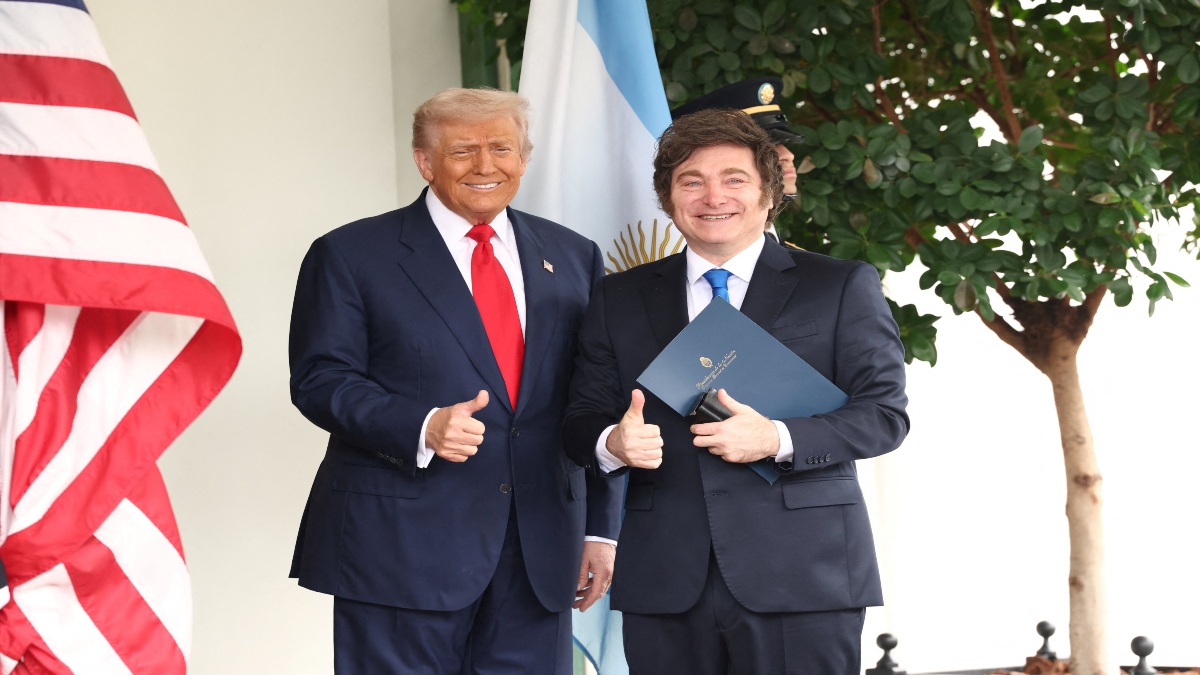Argentinian President Javier Milei’s party scored a decisive victory in Sunday’s legislative elections, raising questions about whether the win reflects domestic support for his reform agenda or the influence of US backing, particularly from President Donald Trump.
According to a Politico report, citing local media, with more than 99% of ballots counted, Milei’s Freedom Advances party secured nearly 41% of the vote, leaving leftist rivals trailing and giving the maverick president greater leverage in Congress.
The election was closely watched in Washington, where the White House recently moved to stabilise Argentina’s faltering economy amid market uncertainty over Milei’s radical austerity policies, added the report.
“Congratulations to President Javier Milei on his Landslide Victory in Argentina. He is doing a wonderful job! Our confidence in him was justified by the People of Argentina,” Trump posted on Truth Social.
He later described Milei as a “Trump-endorsed candidate” and hailed the result as a “BIG WIN.”
The US had earlier provided substantial support to Argentina, including a $20 billion currency swap and plans for an additional $20 billion in private-sector financing, part of what Treasury Secretary Scott Bessent called a new “economic Monroe Doctrine” to stabilise friendly governments in Latin America.
“We think it is much better to use American economic power up front to stabilise a friendly government and lead the way,” Bessent said Sunday on NBC News.
Impact Shorts
More ShortsCritics have characterised the aid as an attempt to influence regional politics, particularly given Argentina’s status as the IMF’s largest debtor.
Milei, elected in 2023, campaigned on a populist, libertarian platform promising to slash bureaucracy, curb runaway inflation, and confront the political elite.
Over the past two years, his austerity measures, including firing tens of thousands of public-sector employees, have reduced inflation but failed to fully stabilise the peso or resolve the country’s currency crisis.
Speaking to supporters after Sunday’s vote, Milei said, “Argentines showed that they don’t want to return to the model of failure,” framing his win as a mandate for economic reform rather than foreign influence.
Despite his success, Milei faces skepticism among Argentinians who view the Trump connection and US aid package as signs of outside interference.
According to a Washington Post report, opposition leaders and candidates used the Trump-Milei friendship and offer of US financial assistance to denounce foreign meddling in the country’s elections. After Milei’s visit to the White House this month, the hashtag #PatriaOColonia, which means “motherland or colony,” began circulating online.
Trump, meanwhile, maintained that supporting Milei aligns with US interests, emphasising that a stable Argentina could influence other countries in the region to follow suit.
“We don’t have to do it. It’s not going to make a big difference for our country, but it will in terms of South America,” Washington Post quoted Trump as saying.
Sunday’s midterms will fill roughly half the lower house seats and a third of the Senate, shaping the legislative landscape for Milei’s proposed reforms. Observers say the elections underscore the delicate balance between domestic support for radical economic policies and the role of foreign backing in Latin American politics.
With inputs from agencies
)